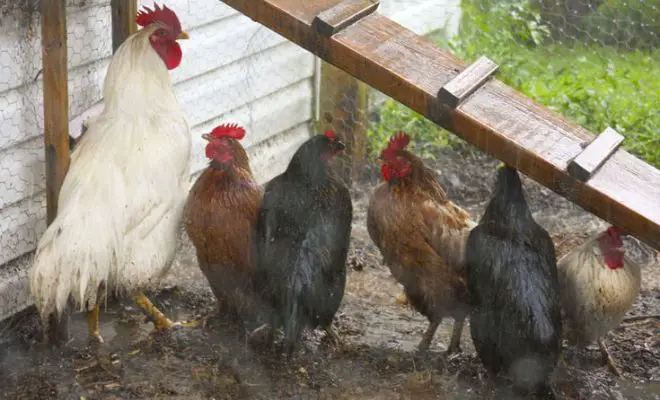6 Genius Treat Ideas to Keep Your Chickens Mentally Stimulated

Chickens are intelligent and curious creatures that thrive on mental stimulation. Mental stimulation treats for chickens serve multiple purposes. They prevent boredom, encourage natural behaviors, and promote overall well-being.
Discover 6 genius treat ideas to make your chickens’ daily routine engaging and fun. From homemade frozen veggie blocks to store-bought cakes and interactive toys, these treats stimulate natural instinct of chickens. By rotating treats regularly, you’ll maintain their mental sharpness & healthier chickens that’ll even lay more eggs.
Want to know more about mental stimulation treats for chickens? Let me share all the types of treats for them that boost their mental condition!
Table of Contents
5 Reasons Why Mental Stimulation is Crucial for Chickens

Chickens may seem like simple farmyard creatures, but they’re actually quite intelligent and curious birds. So, mental stimulation is a crucial part! Here’s why mental stimulation is crucial for their well-being:
- Prevents Boredom: Confined spaces and lack of mental challenges can lead to boredom in chickens. This can manifest in destructive behaviors like feather picking, pecking at each other, or pacing.
- Promotes Natural Behaviors: Mental stimulation encourages chickens to engage in their natural instincts like foraging, scratching, and exploring. This keeps them occupied, reduces stress, and promotes overall happiness.
- Sharpens Cognitive Function: Just like any animal, mental stimulation helps keep chickens’ minds sharp. Engaging in puzzles and challenges can improve their problem-solving skills and memory.
- Reduces Negative Behaviors: Boredom and frustration can lead to aggression and destructive behaviors in chickens. Mental stimulation helps prevent these issues by keeping them occupied and content.
- Improves Overall Health: Mentally stimulated chickens tend to be healthier overall. They experience less stress, which can boost their immune system and potentially lead to increased egg production (in laying hens).
6 Types of Mental Stimulation Treats for Chickens

Luckily, there are many fun and rewarding ways to keep your feathered friends engaged with different types of treats. But what are those? Let me share it with you!
1. Foraging Treats
Foraging treats are the best to contribute to chickens’ mental stimulation. Here are the options you can follow –
- Scattered Grains or Seeds: Mimic natural foraging by hiding grains like cracked corn, millet, or sunflower seeds in a deep layer of straw, hay, or grass. Seeds or grains for chickens encourage them to scratch and peck, replicating their natural food-finding behavior.
- Mealworms Hidden in Dirt or Sand: Mealworms are a delicious protein treat for chickens. Hide them in a shallow layer of dirt or sand in the coop or run for a challenging and rewarding hunt.
- Leafy Greens or Herbs Hung Just Out of Reach: Adding leafy greens like kale, Swiss chard, or herbs like basil or oregano for chickens just above their heads is great! It encourages them to jump and stretch, adding an extra layer of challenge and fun.
2. Puzzle Feeders
If I talk about puzzle feeders, get your answer here –
- Treat Balls with Small Holes: These commercially available balls contain treats that dispense slowly as the chickens roll them around. This provides mental stimulation and keeps them occupied for extended periods.
- Wobble Feeders: These feeders have a weighted base that wobbles when pecked or pushed. Fill them with treats and watch your chickens work together to knock them over for a tasty reward.
- Plastic Bottles with Holes: A budget-friendly option! Punch small holes in a clean plastic bottle, fill it with treats, and toss it in the coop. Chickens will have to nudge and peck to get the treats to fall out, offering a fun challenge.
3. Hanging Treats
Chickens love hanging treats. But what to offer? Here’s the suggestion –
- Cabbage or Lettuce Heads on a String: A simple yet effective way to keep them entertained. Suspend a whole head of cabbage or lettuce for them to peck at. They’ll enjoy the challenge of tearing off pieces and the different textures.
- Fruit Kebabs: Assemble kebabs with chicken-safe fruits like apple chunks and berries. Hang them from the coop roof, providing a colorful and visually stimulating treat.
- Suet Cakes with Seeds and Insects: Suet cakes are high-energy treats often containing seeds and insects. Hanging them attracts wild birds as well, creating a lively atmosphere for your chickens to observe. So, insects for chickens and seeds in suet cakes will be quite enjoyable for them.
4. Frozen Treats
If you do not know, chickens love frozen treats! But how can I offer frozen treats? Follow the guides –
- Ice Blocks with Embedded Fruits or Vegetables: On a hot day, cool your chickens down with a refreshing frozen treat. Freeze water with chopped fruits like berries or vegetables like peas for a healthy and hydrating snack.
- Frozen Corn or Peas: Another simple cooling treat is frozen corn or peas! Freeze a handful of corn kernels or peas and scatter them in the run. As they thaw, your chickens will enjoy pecking at the icy morsels.
- Chilled Watermelon Slices: Watermelon is a great source of hydration for chickens. Freeze or simply chill large watermelon slices and offer them as a refreshing summer treat.
5. Interactive Toys
Although some of them get scared, most of them enjoy playing with toys as boredom busters. So, here’s a suggestion part you can offer your chickens –
- Xylophone Feeders: These feeders have different levels where treats are dispensed. Chickens have to peck at keys to release the treats, adding a musical element to treat time!
- Treat-filled Piñatas: Fill a paper mache piñata with treats and hang it in the coop. The challenge of breaking it open for a delicious reward will keep your chickens entertained for hours.
- Swinging Perches with Attached Treats: Attach treats to a perch suspended from the coop roof. As the chickens swing, the treats will move, encouraging them to jump and maneuver for a tasty reward.
Want to know more about toys as a mental stimulation part for chickens? See the video!
6. Sensory Treats
I personally love offering sensory treats. Okay! But what kind of treats are these things? Let me clear it out in the following points –
- Sand or Dirt Baths Mixed with Herbs: Chickens love dust baths, which help keep their feathers clean and healthy. Mix dried herbs like rosemary or thyme with the sand or dirt for a stimulating and aromatic experience.
- Aromatic Plants Like Lavender or Mint in Small Bundles: Chickens have a good sense of smell. Offer them small bundles of fragrant herbs like lavender or mint to pique their curiosity and provide a pleasant aroma in the coop.
- Textured Treats Like Squash with Seeds: Offer different textures to keep your chickens interested. Squash with its bumpy exterior and embedded seeds provides a fun and challenging treat experience.
FAQs
If you have more questions about treats for chickens, see the Q&A section. I included the most common queries for you.
Q: What should I avoid in treats for chickens?
A: Treats should always be offered in moderation and shouldn’t replace their regular balanced diet. Avoid processed foods, sugary treats, or anything that could be harmful, like avocado pits or citrus rinds.
Q: How often should I offer mental stimulation treats?
A: Aim for daily enrichment, but variety is key. Rotate treat types and hiding places to keep them challenged. You can offer smaller treats more frequently or larger, more complex puzzles less often.
Conclusion
Mental stimulation treats are vital for happy chickens, preventing boredom and promoting well-being. Homemade options like cabbage tetherballs and frozen veggie blocks offer engaging challenges, while store-bought foraging cakes and pecking toys stimulate natural instincts. Rotate treats like puzzle feeders to maintain interest and supervise for safety.
With moderation and creativity, you’ll cultivate a thriving flock that rewards you with happiness and potentially increased egg production. Treat your feathered friends to enriching activities—they’ll stay sharp and content.






